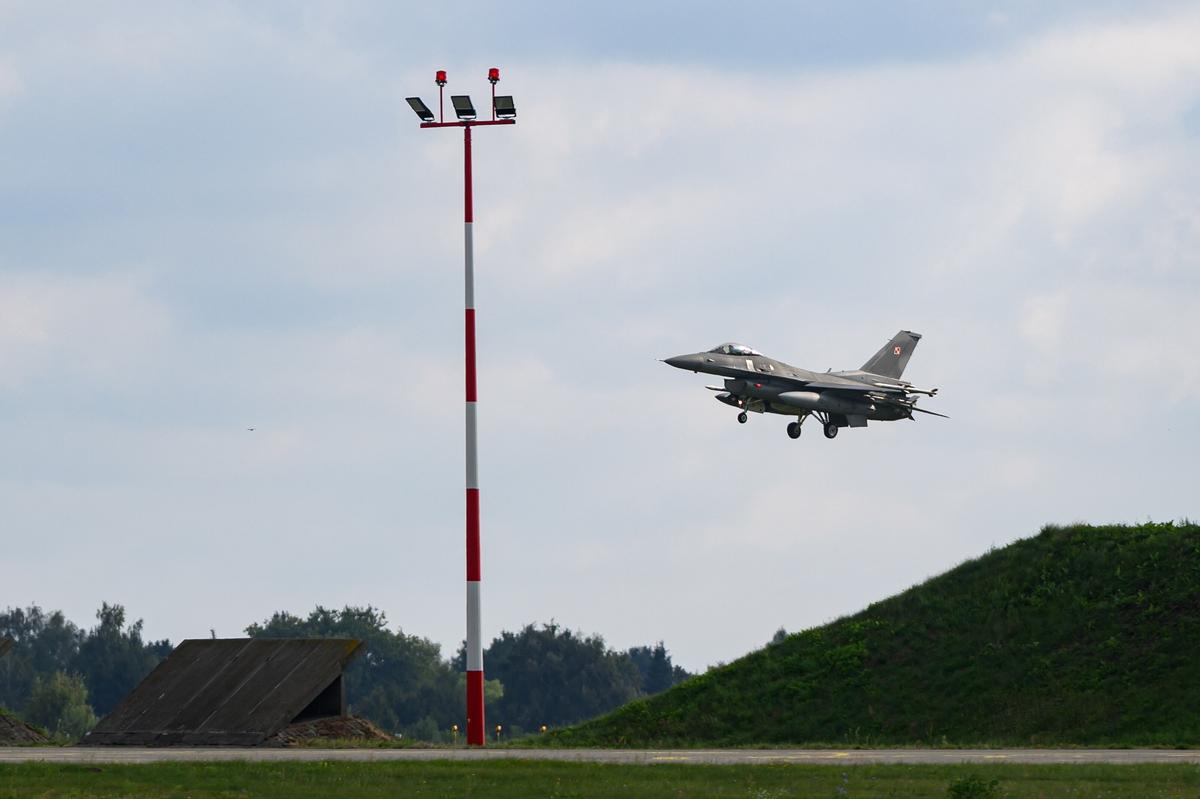



A Polish Air Force F-16 fighter lands at the 31st Tactical Air Base in Krzesiny, Poland, 11 September 2025. Photo: EPA / JAKUB KARCZMARCZYK
A new NATO mission is to bolster the alliance’s eastern flank to protect against future Russian drone incursions into Poland and other member states, NATO Secretary General Mark Rutte announced on Friday.
Denmark, France and Germany have already contributed fighter jets and other military equipment to the Eastern Sentry mission, NATO command said, with the UK and other member states expected to join in the near future.
Speaking at a press conference in Brussels alongside the alliance’s most senior military official, Supreme Allied Commander Europe Alexus Grynkewich, Rutte said the mission would not only enhance NATO’s “traditional military capabilities” but also address the “particular challenges” posed by Russia’s use of drones.
“Eastern Sentry will add flexibility and strength to our posture. And make clear that, as a defensive alliance, we are always ready to defend”, Rutte added, warning that Russia’s “recklessness” was becoming more frequent, and, “whether intentional or not, it is dangerous. And unacceptable”.
Grynkewich said the mission would initially focus on Poland’s eastern border before expanding to cover NATO’s entire eastern flank from the Baltic to the Black Sea.
The announcement comes amid heightened tensions following the incursion of some 19 Russian drones into Polish airspace on Wednesday, which Polish Prime Minister Donald Tusk warned had brought the country closer to military conflict with Russia than at any point since World War II.
Since then, Poland has invoked Article 4 of the NATO convention, triggering a consultative meeting of the alliance’s most senior decision-making body, and requested that NATO allies help it create an “anti-drone wall” by supplying additional air defence systems. It has also temporarily restricted its airspace along the country’s border with Belarus, as well as closing its land border with the country indefinitely.
Earlier on Friday, Russia and Belarus launched joint military exercises in their first large-scale training operation since 2021, which coincided with the drone incident despite being announced earlier this year.
Meanwhile, the UK announced 100 new sanctions aimed at Russia’s shadow fleet of oil tankers and companies supplying key military equipment to Moscow, while EU officials said the bloc’s 19th package of EU sanctions on Moscow would be finalised soon.

